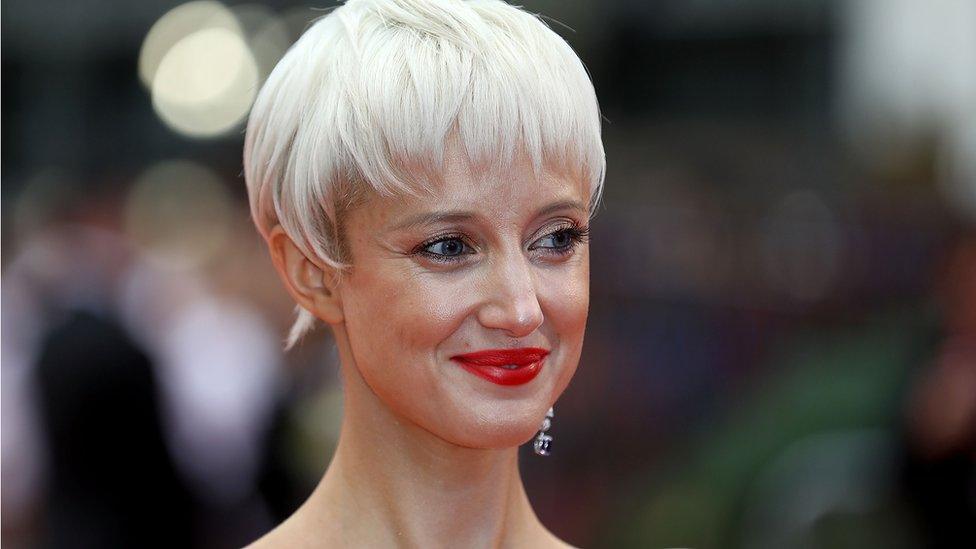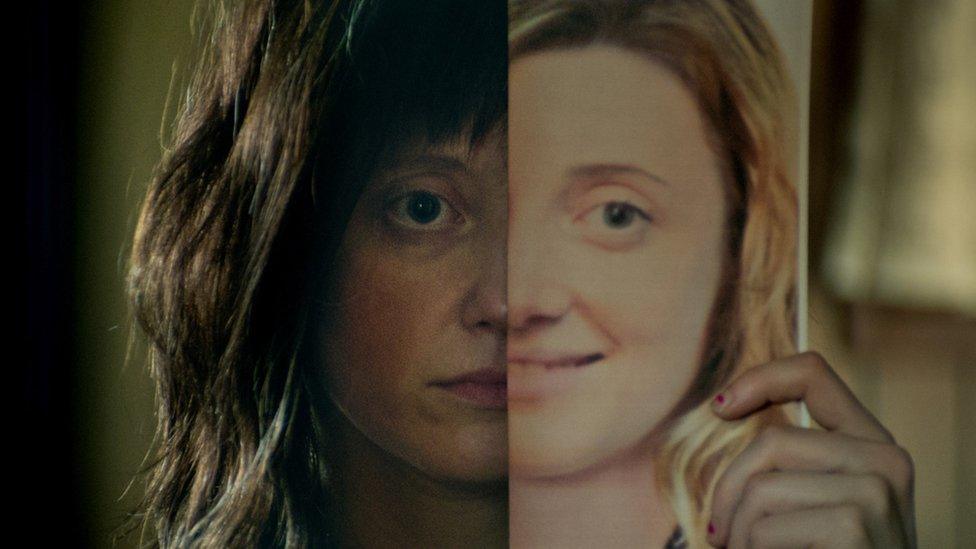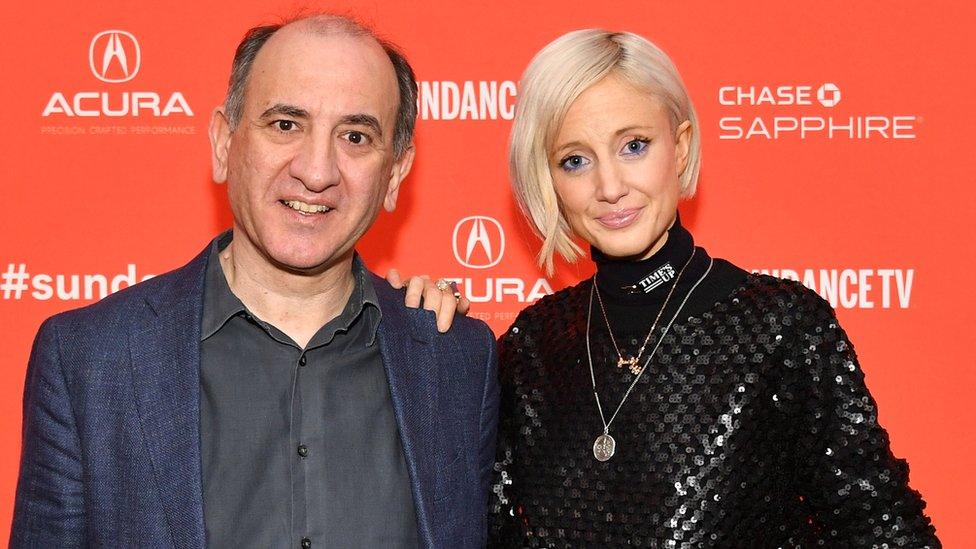Andrea Riseborough: Equality fight 'not just lip service'
- Published

Andrea Riseborough says much of an actress's power lies in looking good
Battle of the Sexes and Death of Stalin star Andrea Riseborough says she hopes the time of "very posh British people being very marketable in the US" is coming to an end.
The Newcastle-born actress adds she wants there to be more opportunities for other British actors.
For a long time she has felt it "odd" to be in her industry, saying "I was using my voice but I felt like it wasn't landing on many ears.

Andrea Riseborough and James D'Arcy starred in Madonna's W.E
"But now I feel a lot better, I am accepting a space because someone who looks like me and talks like me needs to, and there weren't many of those for a while.
"We had some trend of very posh British people being very marketable in the US, which was quite boring. But I hope it's coming to an end because it's felt terminal."
Riseborough, 36, has been hailed by entertainment trade magazine Variety as "the breakout star of Sundance" as she has four films showing currently at the prestigious independent film festival in Utah.
They include Armando Ianucci's Death of Stalin, but also Ku Klux Klan drama Burden, with Forest Whitaker; Mandy, a supernatural thriller with Nicolas Cage, and Nancy, a heavy-hitting drama she stars in, and developed with female co-producers including James Bond's Barbara Broccoli and Rachel Song. Nancy is also written and directed by another woman, Christina Choe.
Song believes Riseborough delivers "one of the best performances of this year's Sundance". Riseborough's performance has also been praised as "dazzling" by critics, along with Choe's script.

In Nancy, Riseborough's character is convinced she is the daughter of a couple whose child went missing 30 years before
"It's funny that two of my current films have just a female name as the title," says Riseborough, "because when we were trying to get Nancy together, a male producer, who is a feminist, warned us that 'a film with a woman's name in the title is not marketable'.
"Really? I mean, Gigi for example? You don't have to look that far for films with female names that have been pretty popular. It's not a groundbreaking contest, is it?"
Riseborough first attracted attention as Wallis Simpson in Madonna's 2011 drama, W.E, although she'd been acting in TV and film since 2005. She believes her industry is "finally" changing in favour of women, especially following the #MeToo and Time's Up campaigns.

Black Mirror - Crocodile: Andrea Riseborough persuaded creator Charlie Brooker to change the character from male to female
"It's not just lip service," she believes. "The US, where I now live, is taking it really seriously. I've got great faith that now the door's opened it can't be closed, I think some women are afraid it's the one opportunity they might get to walk through the door, but I think that comes from a lack of an abundant mindset, and that comes from having been unequally paid for so long."
Riseborough has said that for one project, she discovered she was being paid 1/24th of male co-star's salary - points out that within the entertainment industry, the bulk of female power still lies in a woman's looks.
"To be fair, no one is making me stand on a red carpet in a nice dress, it's my choice," she says.
"We have chosen to do that because we want to have a voice, and few platforms have been accessible to us as women. The avenues of clothes, hair and make-up have provided us with opportunities to have a voice and to develop some sort of power. Look at the voice Cheryl (Tweedy) developed through her advertising. That's just the way things are right now, but it's changing all the time."
Riseborough says at some point, she'd want to try directing a script she's written. In the meantime, she's been adjusting other people's. She persuaded Charlie Brooker to change the role she plays in Crocodile, part of the most recent Black Mirror series, from a male to a female.

Director Armando Ianucci was with Andrea Riseborough at Sundance for their movie Death of Stalin
She plays a woman who will go to fatal extremes to protect the life and family she has built for herself.
"When I initially read for the female role my co-star plays, I told Charlie that I was interested in the other role, which was a man's," she recalls. "So they re-wrote it for me. It's even better that they didn't swap my main co-star's part to a guy. It ended up being two women in the main roles, and that was an exciting and believable dynamic.
"There was some concern from up top that the part would not be sympathetic if it was a woman and that was all the more reason for me to do it to stop perpetuating stereotypes. Pinning criminal acts on certain genders - that's a strange thing we seem to do in society, it's so negative and yet it happens in film and TV all the time."
The Sundance Film Festival runs from 18-28 January 2018. Black Mirror Season 4 is available on Netflix.

Follow us on Facebook, external, on Twitter @BBCNewsEnts, external, or on Instagram at bbcnewsents, external. If you have a story suggestion email entertainment.news@bbc.co.uk, external.